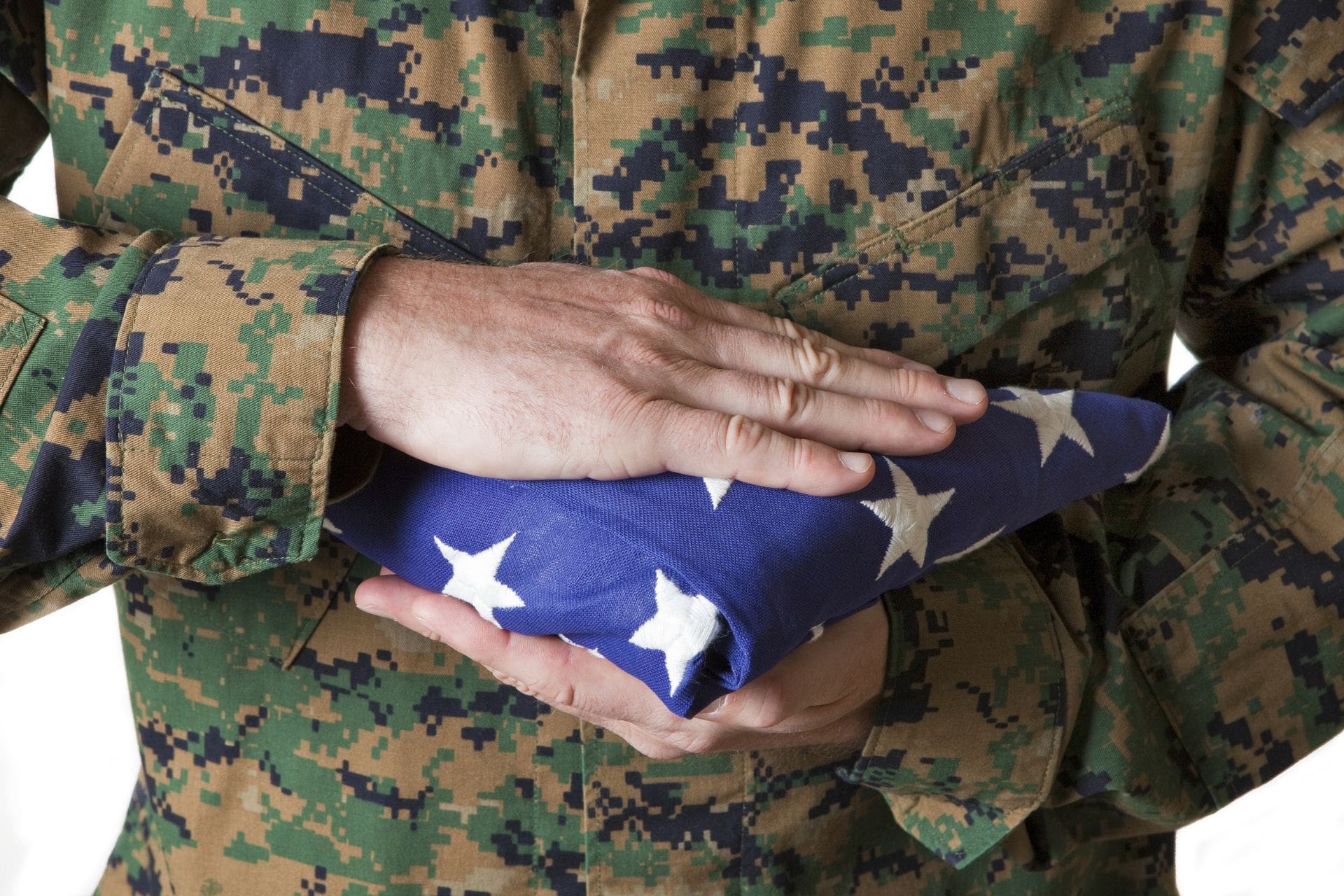Understanding VA Survivor Benefits: DIC and Pensions
Widowed spouses of military veterans often become acquainted with the VA and the complexities of VA benefits during one of the most stressful and challenging moments of their lives. The loss of a spouse is emotionally taxing, and navigating your financial affairs can seem like an overwhelming burden when you would rather spend time honoring their memory and focusing on your healing.
Depending on your situation, survivor benefits can play a pivotal role in your long-term financial plan. For this reason, it is important to gain a clearer understanding of VA benefits for surviving spouses and have clarity on your next steps moving forward. To discuss DIC benefits and learn more about the compensation you are entitled to, consider scheduling your free case review with the team of accredited attorneys at VetLaw today.
What Happens If Your Spouse Dies with 100% Disability?
If you and your spouse relied on monthly VA disability benefits, you may be left wondering if these benefits will continue after the loss of your spouse. While disability compensation will not be continued for the surviving spouse of a deceased veteran, you may be entitled to a different type of benefit called Dependency and Indemnity Compensation (DIC).
What Is Dependency and Indemnity Compensation (DIC)?
Dependency and Indemnity Compensation provides a valuable opportunity for the families of veterans to continue receiving benefits from VA. If your spouse passed away in the line of duty or died due to a service-related injury or illness, you may be able to collect DIC benefits. Dependency and Indemnity Compensation is a monthly benefit designed to provide financial assistance to the qualifying survivors of veterans. These benefits are available to all legally married military couples regardless of orientation.
What Other Benefits Are Available for Surviving Spouses of Veterans?
Dependency and Indemnity Compensation is not the only benefit available for surviving spouses of veterans. The VA does provide a range of other VA benefits for surviving spouses and eligible family members, including:
- Survivors Pension. Depending on when your spouse entered active duty, and for how long, you and your children may be eligible for survivors’ pension. If your spouse entered active duty before 9/7/1980 and served for 90 days on active duty with 1 day served during wartime, your family may qualify for benefits. Moreover, if your spouse entered active duty after that date but served for at least 24 months with 1 day served during wartime, you may be eligible for benefits. Included in the eligible wartimes for survivors’ pension are World War II, the Korean Conflict, the Vietnam Era, and the Gulf War.
- Healthcare. TRICARE and CHAMPVA benefits may be available for you and your family to cover relevant medical expenses.
- Education and Training. As the spouse of a deceased veteran, you and your children may qualify for Chapter 35 education and job training benefits through the GI Bill.
- Home Loans. Depending on your unique situation, you may be eligible to obtain a VA-backed housing loan.
- Life Insurance. There are several life insurance options as well as financial and will preparation services available for qualifying surviving spouses.
- Burial Benefits. The surviving spouses of qualifying veterans can apply for assistance with the costs of burial, cremation, and funeral services.
Frequently Asked Questions
As experienced VA benefits attorneys, we often receive questions about the compensation earmarked for the surviving spouses of military veterans. The following are some of the most frequently asked questions that we receive from current and prospective clients about DIC benefits.
Who Is Eligible for DIC?
Not every spouse of a deceased veteran is automatically eligible for DIC benefits. To qualify for Dependency and Indemnity Compensation, a widow must provide evidence of one of the following:
- Cohabitation with the veteran continuously until their death, or
- If separated, that the separation was not due to the fault of the surviving spouse
Additionally, you must also prove that you meet additional requirements. Specifically, one of the following must be true:
- You got married to veteran within fifteen years of their discharge from the period of military service during which the service-related illness or injury developed or worsened, or
- You were legally married to the veteran for at least one year, or
- You had a child or children with the veteran
In essence, even if you were not legally married to the deceased veteran, you may still be eligible for benefits if you had a child with them and cohabitated with your partner until their passing.
Finally, you must show that the cause of death is either related to military service or a service-connected condition or that the veteran was rated 100-percent disabled for at least ten years prior to death.
How Can You Apply for DIC Benefits?
The process of applying for DIC varies depending on whether your spouse already received benefits or if the veteran was never in the VA system at the time of their passing. If your spouse was not in the VA system, the process will be more time-consuming.
To apply for DIC, you will need to submit your spouse’s medical records and death certificate. Surviving spouses can apply for DIC benefits online through the VA’s website or by printing and mailing the Form 21-534 to the VA. If you are attempting to complete this form without the help of an attorney, be wary of questions regarding whether you are seeking service-connection for your spouse’s cause of death. If your spouse did not pass away due to a service-related condition, you will want to ensure that this question is answered correctly.
What If You Have Already Applied for DIC Benefits and Been Denied?
If you have already applied for DIC and been denied benefits, there are options available for you to continue pursuing the compensation you deserve. The appeal option that you use will depend on when your first DIC claim was filed and the circumstances of your claim. If your DIC claim was filed after February 19, 2019, for example, you have three different avenues for appealing the denial, namely:
- Supplemental Claim to submit new evidence.
- Higher-Level Review to request a senior reviewer to re-evaluate the decision.
- Board Appeal to have your case heard by a Veterans Law Judge.
The strategy you use to appeal a denied claim is important, and you may find value in seeking assistance from an accredited VA disability attorney. Your attorney will work with you to identify the right next steps and secure a favorable outcome for your case.
How Long Does the DIC Appeals Process Take?
The timeline of a DIC appeal will depend on the appeal option you use. For claims prior to February 19, 2019, the Legacy Appeal process is used. The VA estimates that this process takes 12 to 18 months to complete, but this timeline can be longer if delays occur. Appeals filed after this date fall under the new Appeals Modernization Act system, which streamlines the process. This process can take anywhere from a few months to over a year, depending on the appeal channel being used.
How Long Does It Take To Get VA Survivor Benefits?
How Long Do VA Survivor Benefits Last?
Pension and DIC benefits are available for as long as the family member meets eligibility criteria. They are not generally available to spouses who remarry or who are cohabitating with someone else who could be considered a spouse, except when the remarriage happens after a certain age. Chapter 35 benefits about education and job training are available for up to 10 years from the date of the veteran’s death or until surviving dependent children reach the age of 26. Other programs have their specific time limits.
DIC benefits for widows 2024?
In 2024, Dependency and Indemnity Compensation (DIC) remains a crucial benefit for widowed spouses of military veterans, providing essential financial support during a time of loss. DIC is a monthly benefit offered to surviving spouses when a veteran’s death is attributed to service-related injuries or illnesses. For many, this compensation is a lifeline, helping to cover living expenses and maintain financial stability. To qualify, the surviving spouse must meet specific criteria, such as proof of a legal marriage to the veteran and, in some cases, evidence of cohabitation until the veteran’s death. Additionally, the veteran must have been rated 100% disabled due to a service-connected condition for at least ten years before death, or the death must have been caused by a service-related issue. The application process can be complex, but with proper guidance and legal assistance, eligible widows can navigate the system and secure the benefits they deserve.
Let Us Help You Obtain the DIC VA Benefits You Deserve
We are a veteran-owned law firm with a deep understanding of the often complex application and appeals processes involved with obtaining VA benefits for surviving spouses. Our team of seasoned attorneys will do the legwork of helping you obtain the evidence needed to prove eligibility in these programs. For your free case review, contact VetLaw today.







